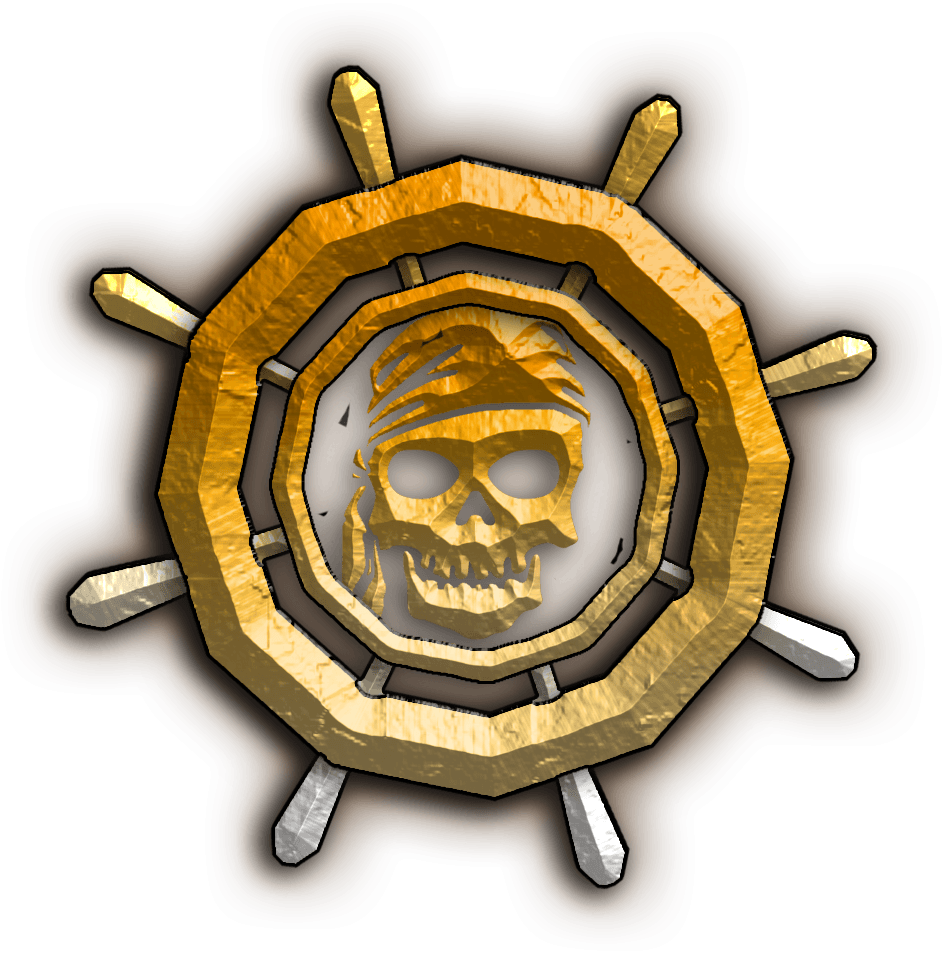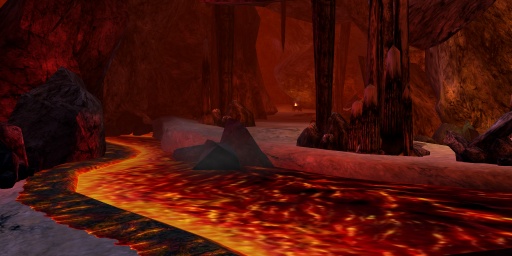17th January
My late adolescent years were instrumental in inculcating a disbelief in the incorporeal in me, as I spent them ruminating in the study of the works of scholars like Isaac Newton. 'My Life Among Pyrates' on the other hand, with its myriad of tales that centered around paranormal subjects, such as cursed treasure, spirits, mermaids, and gods, allowed me to imagine a world out there that was shrouded from the eyes of a layperson such as myself; one that gradually faded away from my thoughts as I grew older. My former beliefs on this matter were proven to have some basis in reality when I first encountered a sailor under our employ - Jack Sparrow.
For the various crimes he committed, his ship was set aflame and he was branded a pirate, for which he chose to jump into the ocean and salvage the one thing he had come to prize. With his apparent drowning, I lost my one chance to verify if the powers of the sea were indeed real. It was not his betrayal of the Company and myself which proved to me that there was more than meets the eye to nautical myths and legends, but rather the fact that he was apparently alive and well years after his punishment.
It was no less than a few years after this incident that his name appeared in a dispatch sent out by the Hong Kong branch of the Company, pertaining to the dismissal of one Lord Benedict Huntington from our services. The man willfully neglected his duty as the manager of the regional chapter to go and wage a war against pirates in the high seas, expending much of the Company's resources in the process. He claimed to have frequently encountered a man named Jack Sparrow, the captain of a ship named the Black Pearl. I was startled by this inclusion of a dead man's name in the report, so I set sail to Hong Kong to meet him in person and inquire about the facts of the matter.
His lavish estate was not reflected by the sordid state that I found him in; drunken and in despair, and in an incomprehensible delirium about fanciful stories of fighting to end a Brethren Court of pirates. Their plans were foiled at the hands of Sparrow, but he was undeterred in his desires to eliminate global piracy with the abject intention of advancing his position in the Company.
Never to be stopped, he visited the Company archives under the EITC’s headquarters in London, where he flipped through the pages of many a book or manuscript about magic, and uncovered an unexpected truth about our history. As the Dutch East India Company grew to become one of the most powerful organizations in the known world, the EITC became desperate to rival their competition’s growth. It was during their foray into the Middle East that an agent formed a pact with an ancient clan known as the Abu Nar, which allegedly dealt with alchemy and various mystical arts. The clan was by that point weakened by infighting and weak leadership, perhaps due to their fall at the hands of the Spanish Empire, so they sought to come to an agreement with the EITC that would prove to be another nail in their coffin.
Their origins could be traced back to the ancient times in the Middle East, but they truly rose to power when they formed a close association with the Castilian monarchy, occasionally crafting weapons of inconceivable power for them, in exchange for hefty sums of gold and positions of power. One such sale would end up being the most foolish they’d made, as they crafted a weapon with god-like capabilities for the conquistador Hernán Cortés. Before going on to devastate the Aztec Empire in the New World, the conquistador adjudged it wise to decimate the clan before their weapons could potentially be used against the Spanish monarchy, and so their numbers and strength dwindled within the span of one year.
It was a surviving splinter faction of the clan that was present in the Arabian peninsula with which the EITC formed a pact, allowing them to gain an unholy edge in battle. They were used by the Company’s army to ensure that their trade flourished in the region. The board of directors then decided it prudent to follow the pragmatic approach of Hernán Cortés before them by asking the local shahs to outlaw the practice of magic and the witch-hunts that began crushed any remaining vitality that the Abu Nar there may have had. However, the archives also contained other information about the clan that was gleaned from them, such as where the other factions’ last outposts could be.
I was quick to laugh off these stories as ludicrous ramblings of a man who lost his heading in battle. Yet I wondered how coincidental it could have been that a pirate with a similar name and mannerisms (as he also described to me) was active in the region? Highly, I thought. And so I pushed these concerns to the back of my head until two incidents brought them into the forefront again.
The first was the occasional sailor talk about a cursed ship with black sails that preyed on merchant ships making the crossing from the Caribbean to England. This ship was known as the Black Pearl, which was what Benedict referred to Sparrow’s ship as, and reports from the Royal Navy also seemed to indicate that it was indeed real. I trudged through the reports for any minor detail about the ship in question, and I realized that it bore all the markings, aside from the charred hull, of the Wicked Wench, the ship that seemingly dragged Sparrow into the depths of the ocean. Could it have been that Sparrow used some terrible otherworldly power to rise back from the dead? I considered that improbable upon jogging through my memory, as the disgraced lord had explicitly stated that nothing was out of the ordinary with his or his crew’s appearance. Then perhaps some sort of curse may have come into effect, only a few years after the resurrection? There was no point speculating about this matter - the answers had to be obtained from Sparrow’s former crew, some of whom went on to sail aboard a ship that was named in the pirate’s honour.
The second incident was my discovery that there was, in fact, an archive beneath the headquarters of the Company. It housed a trove of knowledge about the company’s various dealings and charters, as well as a secret section that was reserved only for Lords. This section was rendered accessible to me after I was granted Lordship by his Majesty, the King. I verified all the claims of Huntington about the clan then and there and set off to sail to the mentioned location with a large party which included Ian Mercer and several hired mercenaries. It was there that we came into an accord with the leader of a village that was populated by the descendants of the Abu Nar Clan. Although we could have enacted a massacre to take the items, I decided that the best route to take would be an amicable one. In exchange for allowing their best men to access various provisions set aside by the Company across the globe, we received several weapons that were capable of feats that I could not have ever imagined I would witness - blades that can turn its victim to ice, and pistols that were enhanced to fire at targets almost automatically, to name a few.
I have spent several hours in the weeks following the deal with the Abu Nar Clan in examining the enhanced weaponry that I have intended to use for my own protection. It is hard to not be awed by all of the intricate craftsmanship that went into it, let alone the apparent unearthly powers that make it an ideal weapon for raining devastation upon our enemies in droves. The pistol repositions itself to aim at targets, almost as though it has a mind of its own. I have no intention to personally use it in such matters of conflict, as they deserve to be in the possession of someone who is more adept at shooting. As Mercer was already handed the twin pistol as well as the freezing daggers, it will have to go to another equally skilled loyalist.
It gradually dawned on me that the likelihood of every nautical myth being real was very high. These were powers of the sea from a long-forgotten time that lay dormant, waiting for an imperial power like England or Spain to grab them and assure their dominance. Huntington realized this, but was foolish enough to think that it would advance his position in the Company, rather than rising up to a position from which he could dictate that the Company utilize them. I realized the folly in the way I have operated with regard to our more off-the-books issues. Hiring mercenaries would not suffice, as there needs to be a consistent personal army that I can rely on. Reshuffling our private armies from India to operate in the seas would help us fend off any roguish threats, but they would not solve my every need. To this end, I have seen it fit to allow Ian Mercer to recruit mercenaries and soldiers to permanently work under the banner of the ‘Black Guard’, of whose founding members will include Mercer’s twin proteges, Neban and Remington.
The former was sent to infiltrate the taverns of London to uncover any information pertinent to Jack Sparrow, as he is known for being inconspicuous, and he was quick to discover the ship that Huntington pointed me to - The Sparrow. The former pirates seem to have turned over a new leaf as legitimate merchants of various goods, and intend to embark on a journey to the Caribbean to trade their wares. We will intercept them as they head out into the open sea, and divulge any information pertinent to the powers that reanimated Jack Sparrow and his accursed vessel. Neban will be the one to wield my weapon as we cut down the crewmembers to size, and I intend for him to keep it if he proves to be making the best use out of it. Once the information is extracted from the survivors, they will be disposed of, removing any loose ends as we head forth into a new chapter that is unfolding in the intertwined history of the EITC, England, and the world.

